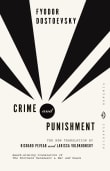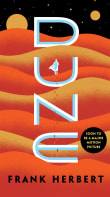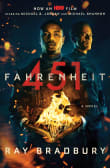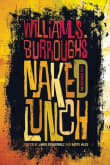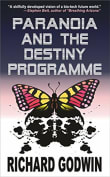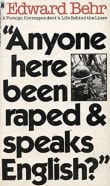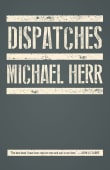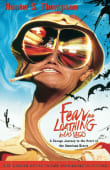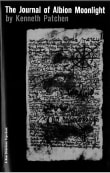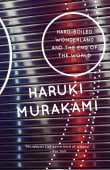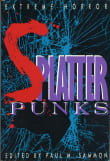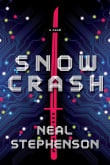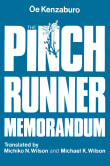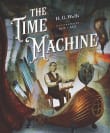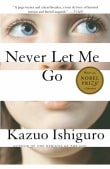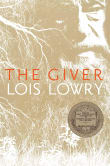A Clockwork Orange
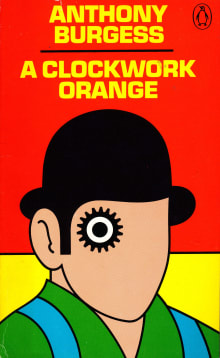
Book description
In Anthony Burgess's influential nightmare vision of the future, where the criminals take over after dark, the story is told by the central character, Alex, a teen who talks in a fantastically inventive slang that evocatively renders his and his friends' intense reaction against their society. Dazzling and transgressive, A…
Why read it?
14 authors picked A Clockwork Orange as one of their favorite books. Why do they recommend it?

This book is probably the quintessential book of mayhem, in my opinion.
Yep, it’s super dated, and the dialect can be difficult to get into, but I thought it was worth it, especially if you read the European version, which has an additional chapter the US publisher cut out. Abruptly it goes from a novel of unrepentant chaos to one of redemption.
From AK's list on motorcycles, shifters, and mayhem, oh my!.

This is the book that got me into Science Fiction in the first place and it remains, perhaps, my favorite novel. The setting is a near-future dystopian society where a subculture of young, roving gangs control the streets through extraordinarily violent antics (ultra-violence). This violent behavior is enhanced by “milk plus,” a drink laced with synthetic drugs available at the Korova Milk Bar, which is where we first encounter our main character, Alex, a 15-year-old gang leader.
When Alex is arrested for murder, he is selected to undergo an experimental therapy (The Ludovico Technique) designed to wean him off violent…
From Jane's list on science fiction that use an invented drug.

Before Stanley Kubrick’s groundbreaking film popularized the story was Anthony Burgess’ novel about the degenerate, London droogs. This disturbing tale—which centers around a band of “ultra-violent” criminals led by Alex—is inspired by Burgess’ own experience when he was attacked by Russian youths. The use of a modified Russian language among the droogs (which itself means “friends” in Russian) in A Clockwork Orange is critical to the novel’s philosophical approach. By employing Russian, Burgess plays “phenomenologist” and forces the reader to trust him by virtue of the reader’s assumed unfamiliarity with the book’s language. Questions of free will only arise…
From V.G.'s list on for readers who want a story to challenge them.

This is a book that had an air of danger about it when I was at school. Perhaps mostly because the excellent Kubrick adaptation had been banned (although, as I later discovered, it was ‘banned’ by the director himself because of copycat morons and threats towards his family.) The book contains an invented language. Invented words have been used by authors before, of course, from James Joyce to Lewis Carroll, and many sci-fi authors. Here, it is not only fun and poetic, but also builds a prison of alienation around the protagonists.
From Mike's list on experimental stories that have a unique form.

Most people are more familiar with the film and less so with the novel. Though Stanley Kubrick’s version offered a vivid and electrifying experience while creating some controversy at the time, the novel goes deeper into the workings of the violent mind. Burgess’ style is a treat to read, and the slang and pseudo-language his characters contrive are fun to explore, and plays a larger part in the novel. His characters come off the page as more three-dimensional than in the film, as well.
From G.J.'s list on crime featuring a P.I. with cold-blooded instinct.

Like a lot of people, I came to A Clockwork Orange after seeing Stanley Kubrick’s iconic adaptation, which cleverly incorporates elements of surreal humor into its many disturbing visuals. But the novel, with its groundbreaking use of an invented futuristic slang – Nadsat – is on another level in this regard. Despite the awful acts performed by Alex and his droogs, you can’t help laughing at such phrases as “bolshy groodies,” “starry vellochecks,” “pink glazzies,” and “a malenky bit bezoomny.” The language carries you creeching and smecking through the humble narrator’s descent into state-controlled redemption, all of it real horrorshow…
From Sean's list on making you laugh and think.

Burgess blew me away with how he used the number of chapters to tell a story in and of itself.
There are 21 chapters in Clockwork, and Burgess revealed in interviews that that number is quite purposeful; the book is about a boy maturing into a man, and Burgess used 21 chapters since that is the age at which people are legally considered adults in his homeland of England.
This book taught me that restricting myself on purpose (the way Burgess limited himself to exactly 21 chapters) would enhance my creativity, not hinder it. I also liked how he…
From Dave's list on short sci-fi no one needs 1100 pgs of worldbuilding.

He makes up his own language. He lives his violent fantasies. Its final chapter wasn't originally published in America, due to America's ambivalent understanding of its own morals and tolerances. Striving, beauty, confusion, the teen experience, and all of it dystopian and seen through the looking glass of the narrator's flaws. This, friends, is horrible and beautiful all at once.
From Benjamin's list on with devilishly unreliable narrators.

C’mon, my little droogies; let’s traipse down to the Korova and have a wee bit of Moloko and maybe some of the old ultraviolence. That’s a real good horrorshow!
Is A Clockwork Orange a horror novel? Most would say no. I would give a big, resounding yes. It shows from a first-person perspective the ins and outs of an adolescent sociopath who cares about nothing but the next big thrill and how he can exert his perceived control over the world. Extreme sensual violence and hedonism are displayed, and yet it somehow digs into our souls and reveals how we…
From John's list on psychological horror to drive you insane.

There are many impressive aspects to this novel about the brainwashing of a teenage gang leader, a book that in my opinion far exceeds the 1971 Oscar-nominated Stanley Kubrick film adaptation. Burgess’s invented slang, his artful world-building, the way he flips the narrative to inspire equal measures of disgust, anger, righteousness, pity, hope, and fear—all of these elements make A Clockwork Orange a truly unique novel that switches from dystopia to utopia and back again, albeit in a very different incarnation of dystopia than the one that opened the story.
From Greg's list on utopia-turned-dystopia.
Want books like A Clockwork Orange?
Our community of 10,000+ authors has personally recommended 100 books like A Clockwork Orange.
Browse books like A Clockwork Orange
5 book lists we think you will like!
Interested in good and evil, dystopian, and criminals?
10,000+ authors have recommended their favorite books and what they love about them. Browse their picks for the best books about good and evil, dystopian, and criminals.

